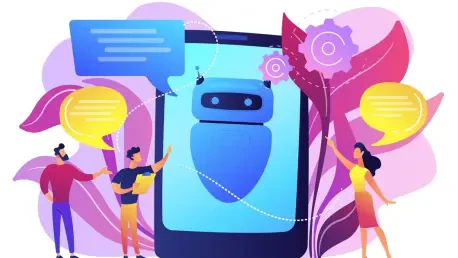As we dive into the rapidly evolving world of retail technology, I’m thrilled to speak with Zainab Hussain, a seasoned e-commerce strategist with a wealth of experience in customer engagement and operations management. With AI reshaping how we shop online, Zainab offers a unique perspective on the groundbreaking partnerships between OpenAI’s ChatGPT and major retailers like Etsy, Shopify, and Walmart. In this conversation, we explore how these collaborations are transforming the shopping experience, intensifying competition in the retail sector, and creating new opportunities for both consumers and businesses. We’ll also touch on the broader implications of AI-driven innovation and what the future might hold for this dynamic industry.
How do you see the recent partnerships between OpenAI’s ChatGPT and retailers like Etsy, Shopify, and Walmart reshaping the online shopping landscape?
These partnerships are a game-changer for online retail. They’re moving us toward a more conversational and seamless shopping experience where consumers can discover and buy products without ever leaving a chat interface. It’s not just about convenience; it’s about embedding shopping into everyday interactions. Imagine asking ChatGPT for a gift idea and instantly purchasing it right there in the conversation. This integration reduces friction and makes the process feel more natural, almost like chatting with a knowledgeable friend who also happens to be a personal shopper.
Can you walk us through how the “Instant Checkout” feature in ChatGPT enhances the customer experience?
Absolutely. With “Instant Checkout,” a user might ask ChatGPT for something like a handmade scarf for a gift. The chatbot pulls up options from partnered retailers like Etsy or Shopify, displaying them directly in the chat. If the seller has opted into this feature, the user can select the item, confirm their payment details, and complete the purchase without being redirected to another site. It’s all done in a few clicks within the same window. If the checkout option isn’t available for a product, ChatGPT still shows it but provides a link to the retailer’s website to finalize the transaction. This keeps the user journey smooth either way.
What are your thoughts on ChatGPT ranking products based on relevance, price, and quality, and how might this influence consumer trust in these recommendations?
I think it’s a smart move to prioritize relevance, price, and quality over whether a product has checkout availability. It signals to consumers that the recommendations aren’t just about pushing sales but about finding the best match for their needs. This can build trust, as people feel they’re getting unbiased suggestions. However, transparency will be key—consumers need to know how these factors are weighed. If done right, this approach could make shoppers more confident in using AI tools for purchases, knowing the system isn’t just favoring the highest bidder.
How do these AI partnerships reflect the competitive nature of the retail industry today?
These collaborations are a clear indicator of how fiercely competitive retail has become. The industry isn’t standing still; it’s a constant race to innovate and improve the customer experience. Partnering with AI platforms like ChatGPT shows that retailers, big and small, are willing to experiment with cutting-edge tech to stay relevant. It’s not just about keeping up with giants like Amazon—it’s about carving out new ways to connect with shoppers. This level of dynamism challenges the notion that retail is a stagnant or overly consolidated space.
Do you think AI tools like ChatGPT are creating new pathways for retailers to reach customers outside of traditional big marketplaces?
Definitely. AI platforms like ChatGPT act as a new kind of storefront, one that isn’t tied to a single marketplace or search engine. For smaller retailers or those on platforms like Shopify, this is a chance to get in front of customers who might not have found them through conventional channels. It levels the playing field to some extent because visibility isn’t just about who can afford the most ad space—it’s about relevance and quality. This opens up opportunities for niche sellers to compete alongside bigger players in a way that feels more organic.
In what ways do you believe AI technologies like this benefit everyday shoppers in their purchasing decisions?
For everyday shoppers, AI like ChatGPT can make shopping feel less overwhelming and more tailored. It can analyze your request and suggest products that match your preferences or budget, often faster than you could browse a website. For example, if you’re looking for eco-friendly home goods, it can narrow down options across multiple stores in seconds. It also saves time by cutting out endless scrolling and can potentially surface better deals by comparing prices on the spot. Ultimately, it’s about making the experience more personal and efficient.
Looking ahead, what kinds of AI-driven innovations do you anticipate other retailers might adopt to keep pace in this evolving market?
I expect we’ll see a wave of retailers integrating AI in creative ways, beyond just chat-based shopping. Think virtual assistants that help with returns or track orders in real time, or AI tools that predict inventory needs and suggest restocks before you even ask. We might also see more immersive experiences, like virtual try-ons for clothing or AI-generated product demos. Retailers will likely focus on deeper personalization, using AI to anticipate customer needs based on past behavior. It’s all about staying ahead by making every interaction with a brand feel unique and effortless.
What is your forecast for the role of AI in retail over the next few years?
I believe AI will become the backbone of retail in the coming years, not just a shiny add-on. It’s going to drive everything from supply chain optimization to hyper-personalized marketing. We’ll see AI embedded in every touchpoint—helping customers find products, guiding them through complex purchases, and even shaping how retailers design their offerings. The challenge will be balancing innovation with privacy concerns, but if done right, AI could make shopping more intuitive and rewarding than ever before. I think we’re just scratching the surface of what’s possible.









